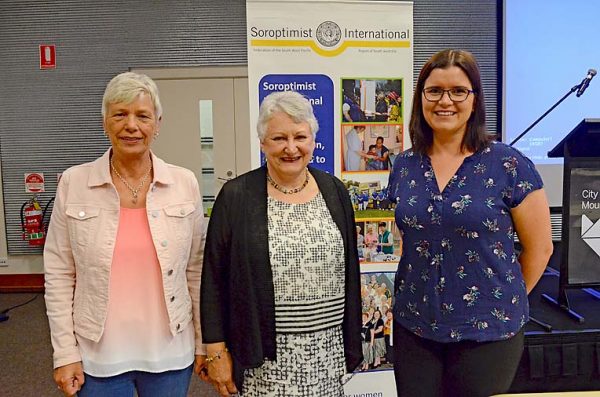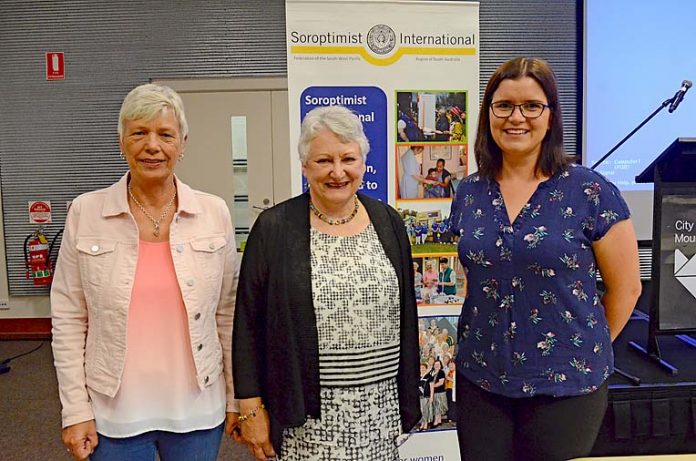
MOUNT Gambier’s Soroptimist International group hosted representatives from 10 clubs across the state at the volunteer organisation’s annual general meeting on Saturday.
Around 30 attendees discussed ways to address homelessness in older women and homelessness more broadly, with guest speakers Jessica Porter and Trish Spark throwing a spotlight on the issue.
Ms Porter, a PhD student who has focused her studies on the development and implementation of affordable housing, provided a snapshot of current academic research on homelessness and examples of local government action toward the issue.
“Contemporary local government is involved in a broader range of service provisions and is the tier of government that knows their communities best,” Ms Porter said.
“The City of Melbourne is very proactive in addressing its homelessness situation and has outlined four focus areas – programs and support, providing information, coordinating networks and research.
“The council introduced local laws with provisions around sleeping in public places – they may ask people who are sleeping rough to tidy up their belongings, but they will not be kicking them out of parks and they help these people access the services they need.”
She said the City of Adelaide was another example of a progressive council taking steps to address homelessness.
“The Adelaide Zero Project will aim to end homelessness in the city and is modelled on a campaign being run in the United States,” she said.
“Adelaide is the first city outside of the US to use the program.”
While ac.care homelessness services manager Trish Spark said homelessness in older women was not “as yet” an issue in the region, she acknowledged youth homelessness continued to plague the city.
“For homelessness services, it is not always about needing money, we need resources and the skills of people in the community,” Ms Spark said.
“Mentoring is something we need to offer these kids – they do not have role models and they need someone who can take them out and show them the different life available to them if they stay in school and stay on the right track.
“Without social inclusion, everything falls down and our funding is very small so we need volunteers to share their skills or even just spend time with these kids.”
Attendees workshopped ideas to take back to their respective Soroptimist groups to make change through advocacy and direct action.








